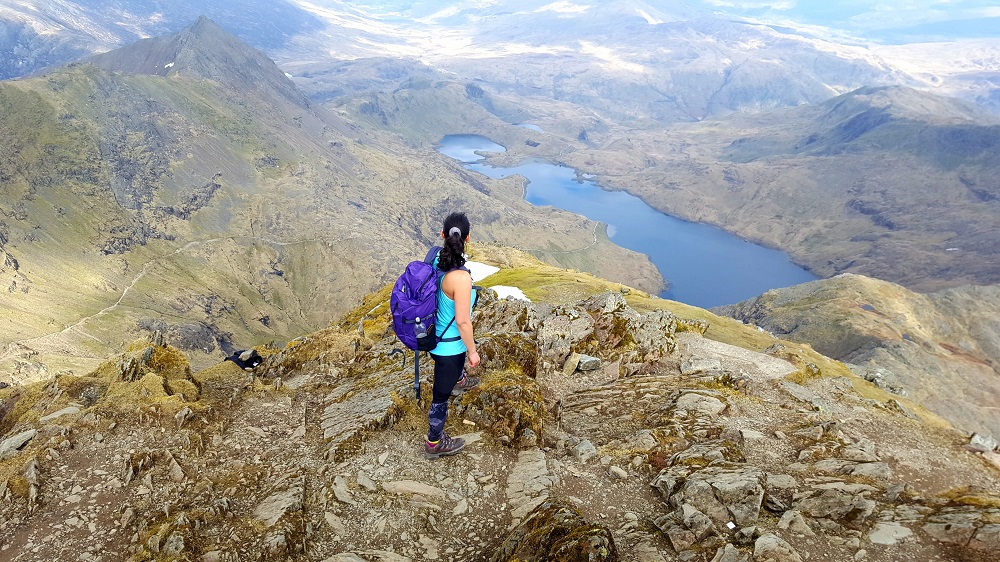5,000 signature petition calls on park authority to drop Snowdon for Yr Wyddfa

Gareth Williams, local democracy reporter
A campaign calling for the nation’s highest peak to be known only by its Welsh name is gathering pace after a 5,000 signature petition was presented to national park bosses.
Meeting in April, the Snowdonia National Park Authority kicked a motion calling for the peak to only be known as Yr Wyddfa into the long grass after authority chiefs instead set up a working group to consider its future policy on Welsh place names.
Such calls, which would also see the park referred to as Eryri rather than Snowdonia, were prompted by Gwynedd councillor John Pughe Roberts who felt it would be “a real chance to make a statement on the need to protect our indigenous Welsh place names.”
Previous efforts have been made to drop the English forms including one from language pressure group Cymuned in 2003, who claimed that the area only became known as Snowdonia due to Victorian day-trippers.
But the park has now confirmed that it has been presented with a petition containing over 5,300 signatures from “around the world.”
Elfed Wyn ap Elfyn of pressure group Cymdeithas yr Iaith, said, “Attacks on the Welsh language is something consistent, this is seen when house names and names for different areas of Wales are changed from Welsh.
“I, and many others think that only using the names ‘Eryri’ and ‘Yr Wyddfa’ would be a positive step towards showing the importance of the Welsh language.”
‘Vibrancy’
During its meeting on April 18, a vote saw members decide not to consider the motion due to a Welsh Place Names Task and Finish Group having already been appointed.
With the group tasked with establishing and adopting guidelines on the use of place names by the park authority, officers say that his will enable it to “protect and standardize the use of place names in the Snowdonia National Park.”
A spokesperson added, “They will also raise awareness within different local and international audiences of the importance of place names in Eryri and as a source which strengthens connections with the environment, history and heritage of the area.”
Cllr Wyn Ellis Jones, the chair of the Snowdonia National Park Authority, went on to say, “The Snowdonia National Park Authority is committed to protect and promote the use of native place names for every day use and for future generations.
“One of the aims of the Task and Finish Group will be to note how success on the use of these place names are measured.
“The vibrancy of the Welsh language is one of Eryri’s special qualities and we are passionate about respecting and protecting our communities, our language and our culture.”
Precedent
‘Yr Wyddfa’ means grave, with legend stating that the giant Rhita Gawr was buried on the 3560 ft mountain. However, it was also known as Carnedd y Cawr (the Cairn of the Giant).
‘Eryri’, meanwhile, is believed to originate from the Latin ‘oriri’ (to rise) and was first documented in the 9th century, despite it long being thought to refer to the Welsh name for Eagle – ‘Eryr’.
The more recently popularised English forms of ‘Snowdon’ and ‘Snowdonia’ are thought to derive from the Saxon ‘snow dune’ meaning ‘snow hill’.
There is a precedent for the ditching of English place names for popular tourist attractions, however, with Ayres Rock in Australia now formally known by its much older Aboriginal name of Uluru.
Were the park to follow a similar route, however, it would not compel other bodies and/or individuals to stop using ‘Snowdon’ or ‘Snowdonia’.
The online petition had stated, “Using the name of Yr Wyddfa and Eryri alone shows the importance of the Welsh language to the people of Wales and changing people’s view of the language, making it more visible to people who come here on holiday and for people who live here now.”
Support our Nation today
For the price of a cup of coffee a month you can help us create an independent, not-for-profit, national news service for the people of Wales, by the people of Wales.







Playing the victim seems to be the latest weapon of choice on the part of anti-Welsh trolls. It’s wearing a bit thin now, but more importantly, consider that this is a policy adopted by other countries throughout the world without raising anybody’s blood pressure. Why pick on Wales?.